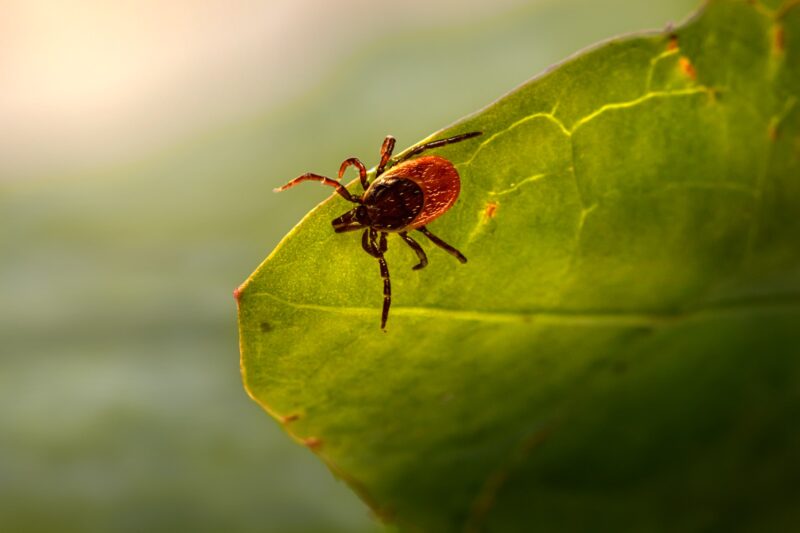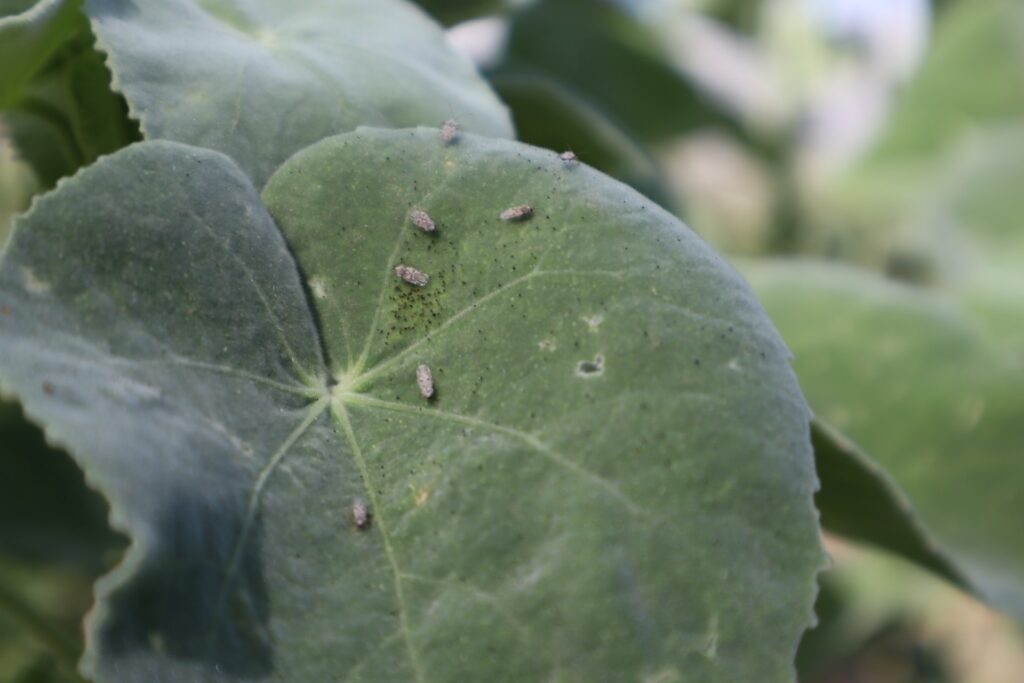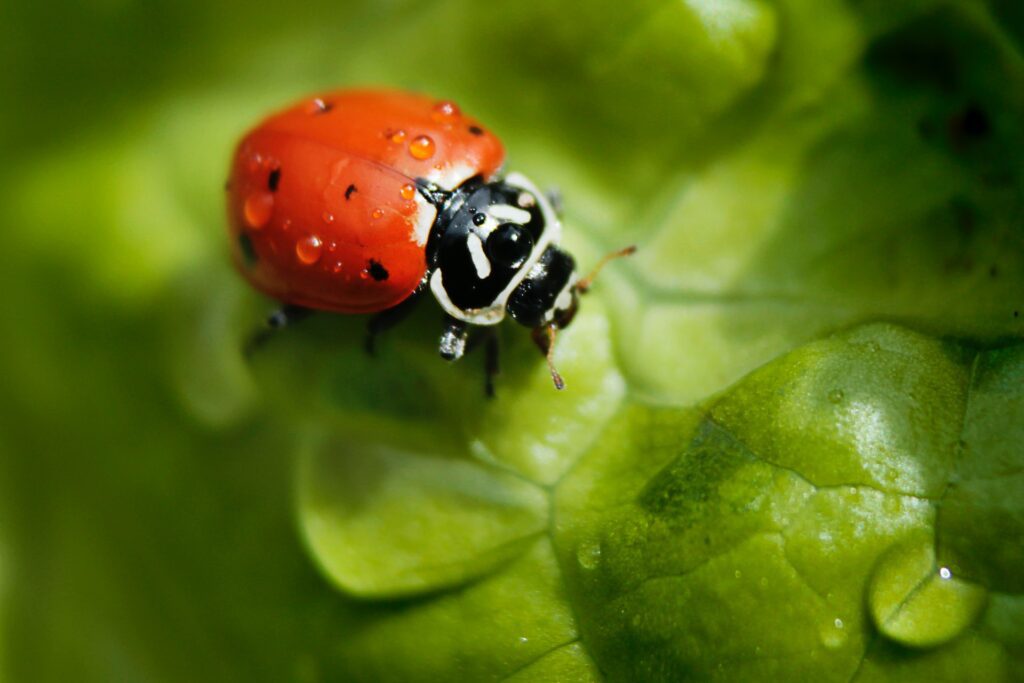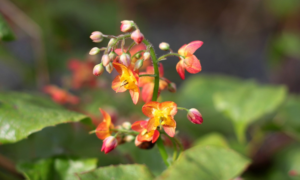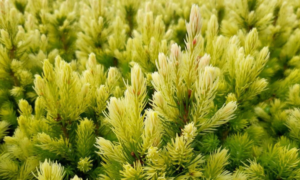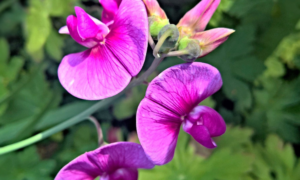We independently research, review, and recommend the best products. If you buy something through our links, we may earn a commission. Learn more.
Pests are a major garden nuisance, especially when they start munching on your beloved plants.
While it’s natural to want to get rid of them as quickly as possible, it’s also important to remember that not all insects are bad for your outdoor space. Bees, butterflies, and ladybugs, for example, are important pollinators that you’ll want to attract and protect.
So, how do you keep your outdoor plants pest-free without harming the good bugs? We’re glad you asked…
Contents
Make pests work harder
Most common garden pests are attracted to certain types of plant, such as aphids and roses.
One way to deter them is to mix up your garden beds by planting herbs or vegetables alongside your flowers. This will make it harder for insects to get to their preferred food source, which may discourage them from sticking around.
Keep your plants healthy
Nature has provided your plants with their own defences against pests and threats, but they need to be in good condition to use them effectively. So, regularly check your plants for signs of stress or damage, and take preventative measures such as pruning dead leaves and clearing debris from the soil.
Pick plants that repel pests
Certain herbs are natural insect repellents and can help keep pests at bay. Scented herbs like rosemary and lavender are effective, as are cooking herbs like basil, lemongrass, and mint.
Garlic and lavender are also all-around pest repellents, while basil and chives are particularly effective at keeping moths at bay and aphids away from chives.
Build a barrier
This one’s simple: if you’re having trouble with larger pests, consider using a physical barrier, such as mesh, netting, or container to give your plants a chance to recover. The above mini greenhouse is an affordable, easy way to protect multiple plants at once from pests.
Don’t pass pests
Be mindful of cross-contamination when it comes to pests. Some can be easily wiped or snipped off, but if you use the same cloth or scissors on multiple plants, you could inadvertently spread an infestation.
Attract the right insects
There are certain plants and flowers that can help attract ‘nice’ insects to your garden. Open, flat-flowering plants like cosmos are great for attracting ladybugs and lacewings, which are natural predators of many common garden pests.
Keep an eye out
Sometimes you can spot pests right away, such as an army of ants marching in and out of a pot plant. Other times, you won’t realize they’ve been around until your plant starts to struggle.
Regularly pruning dead leaves and clearing debris from your garden beds can help prevent pests from hiding and breeding.
Know your enemy
Different pests require different control measures. Here are some common garden pests and how to get rid of them:
- Mealybugs: These pests feed on plant sap and can weaken your plant, causing it to drop its leaves. You may notice a fluffy, waxy substance, usually on the stems or under the leaves. To prevent mealybugs on outdoor plants, quarantine new plants until you’re sure they’re pest-free. To get rid of an infestation, you can wipe them away with a damp cloth or use an insecticidal soap.
- Ants: Ants don’t directly damage your plants and can even have a beneficial role in a healthy ecosystem. However, they are often a nuisance if they nest in the soil of pot plants. To prevent ants from setting up camp, try sprinkling coffee grounds, cinnamon, or chilli flakes on the dirt around the base of your plant.
- Blackflies: These pests lay their eggs in the soil and are typically found on leaves or flying around the home. To get rid of blackflies on outdoor plants, spray a diluted solution of a few drops of essential oil (such as clove, rosemary, or peppermint) per 500 mL of water directly onto the leaves, stems, and soil.
- Scale insects: You may notice a sticky residue on the leaves and stems, as well as hard shells that feel like bumps on the plant. To get rid of scale insects, try wiping small infestations away with a damp cloth or gently scrubbing the leaves with a soft toothbrush. For more severe infestations, you may need to use an insecticide.
By following these tips, you can keep your garden pest-free and ensure your plants have the best opportunity to thrive. Just remember to always use pest control methods responsibly, as many pesticides can harm beneficial insects and other wildlife.
